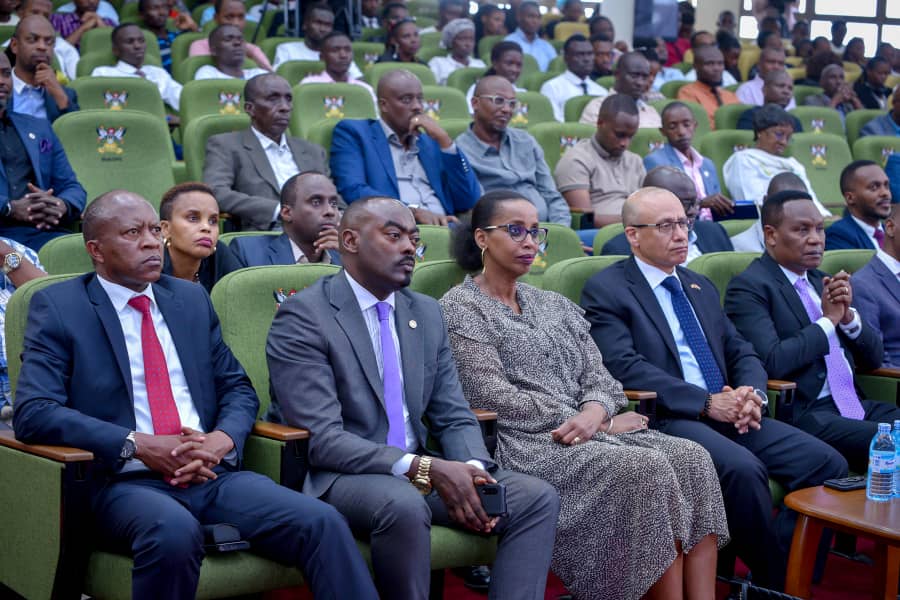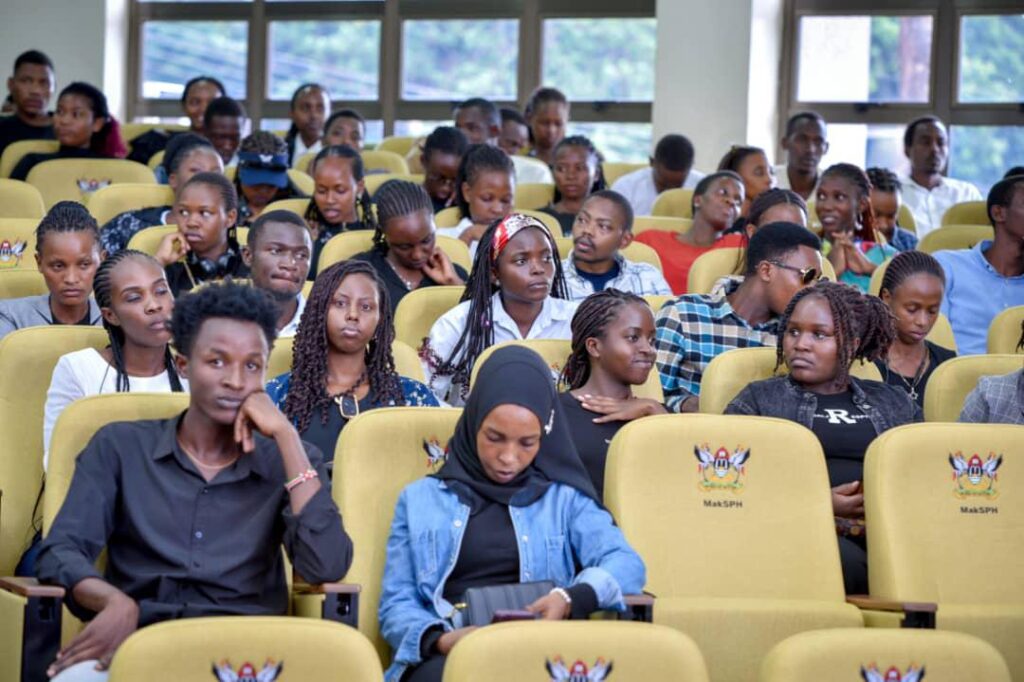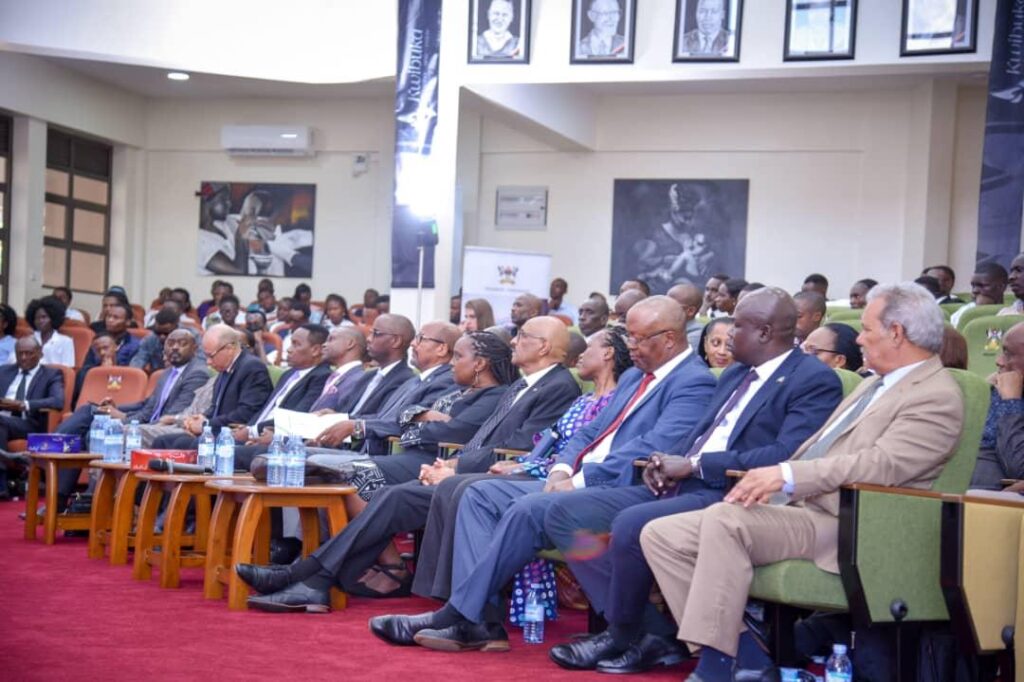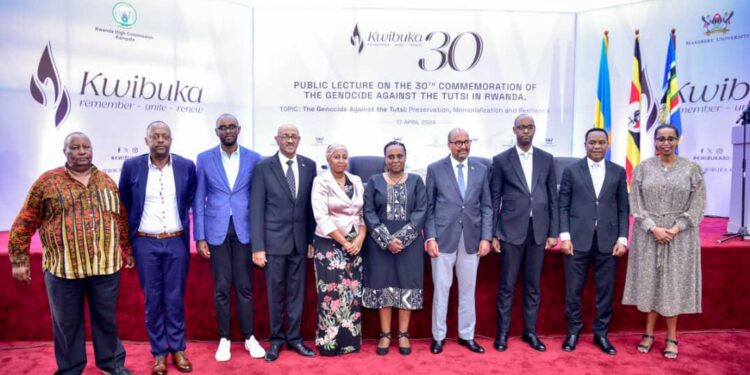On Wednesday, 17th April 2024, Makerere University hosted a public lecture organised by the Rwanda High Commission in Uganda to commemorate 30 years of the Genocide against the Tutsi in Rwanda at the School of Public Health Auditorium.
The event saw different speakers commemorate brothers and sisters from Rwanda in a public lecture which comprised an intellectual discourse on “The Genocide Against the Tutsi: Preservation, Memorialization, and Resilience” 30 years after the genocide against the Tutsi.
The panel discussion moderated by Dr Zahara Nampewo, Deputy Principal, School of Law at Makerere University, featured Mr Kwezi Tabaro; Deputy Director LéO Africa Institute, Mr Jude Kagoro; Research Fellow at The Institute for Intercultural and International Studies (InIIS) Bremen University and Ambassador Ngoga Pascal; (Former Ambassador of Rwanda to Addis Ababa Former Senior Political Officer UN).

In his opening remarks, Prof. Umar Kakumba, the Deputy Vice-Chancellor (Academic Affairs) at Makerere University, said the story of Rwanda since the 1994 genocide against the Tutsi is one of resilience and determination.
“It is one founded on the ethos that one does not recover by ignoring uncomfortable truths but by confronting them and resolving never to let past mistakes reoccur,” he noted.
Prof. Kakumba who is now the Acting Vice Chancellor, said the Public Lecture was timely, especially in the era of increased proliferation of social media and smartphones in our societies.
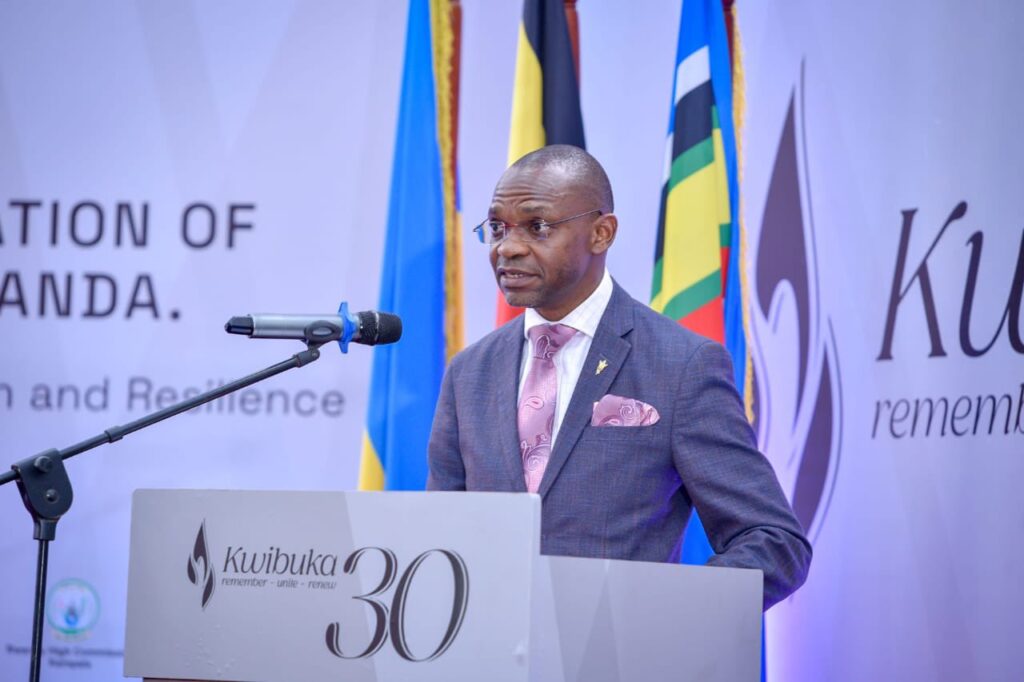
“It is a timely reminder that the damage caused by the reckless spread of misinformation, disinformation and hate speech is extremely dangerous, and if not countered, can take generations to recover from.”
He said hate that portrays itself, especially in the forms of tribalism, segregation and derogatory talk has far-reaching consequences and effects even beyond the borders of the community of the country where it is encouraged.
He added: “At the heart of this resolve is the realization that retribution can never bring about a cessation of violence. It only serves to perpetrate it.”
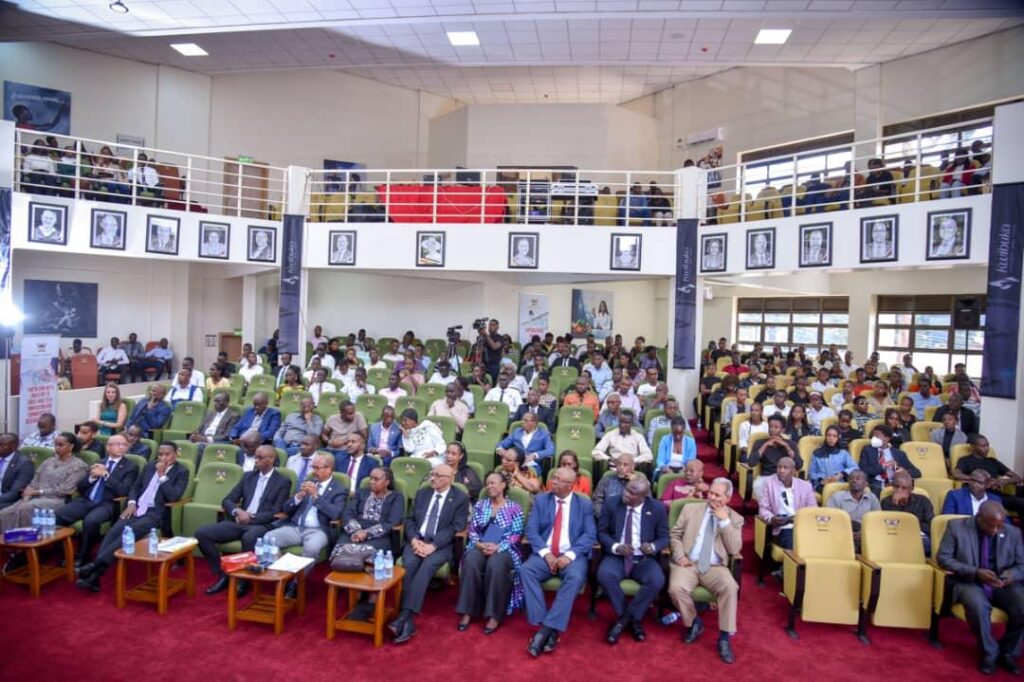
Kwibuka30 calls for unity
Ambassador Philip Rukikaire from the Ministry of Foreign Affairs, who was the guest of honour, said Kwibuka30 is a call to Ugandans and Africans at large to reaffirm their unwavering support for the prevention and fight against the genocide and to ensure that it never happens again
“Remembering the genocide invokes a profound sense of duty among nations to uphold peace and unity. Remembering the violent history of our own and other countries concerns us all in the present and for the future, so we learn not to repeat the mistakes and crimes from the past and so that genocide can never happen again,” he noted.
He said remembering the victims of such atrocity reconnects “us to our humaneness and at the same time teaches us about the failure of humanity because of indifference and apathy.”
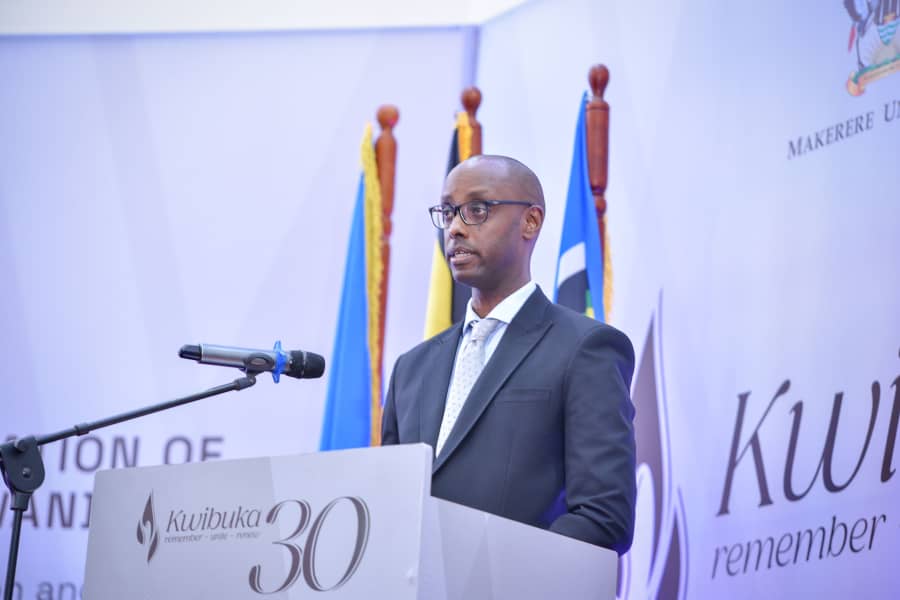
He spoke against the current global trends that include hate speech against certain ethnic groups which poses the risk of inciting violence and genocide amongst communities.
“What the people of Rwanda have achieved since 1994 in their journey to unity, reconciliation and justice is a lesson to the rest of the world,” he added.
Never again
On his part, His Excellency Joseph Rutabana, High Commissioner of the Republic of Rwanda, said they remember so that memory is kept for future generations.

“We UNITE because the UNITY of Rwandans is and will always be paramount; we RENEW because resilience but not despair, by survivors of the Genocide and the whole nation have been a key factor for RENEWING lives.”
He thanked Makerere University for accepting the Rwanda High Commission’s request for partnership in commemorating the 30th anniversary of the Genocide against the Tutsi in Rwanda in 1994.
“We also celebrate 30 years of Unity and Resilience and a whole new generation of Rwandans aspiring for a future free of hatred and built on the principles of a shared identity (Ndi Umunyarwanda).”
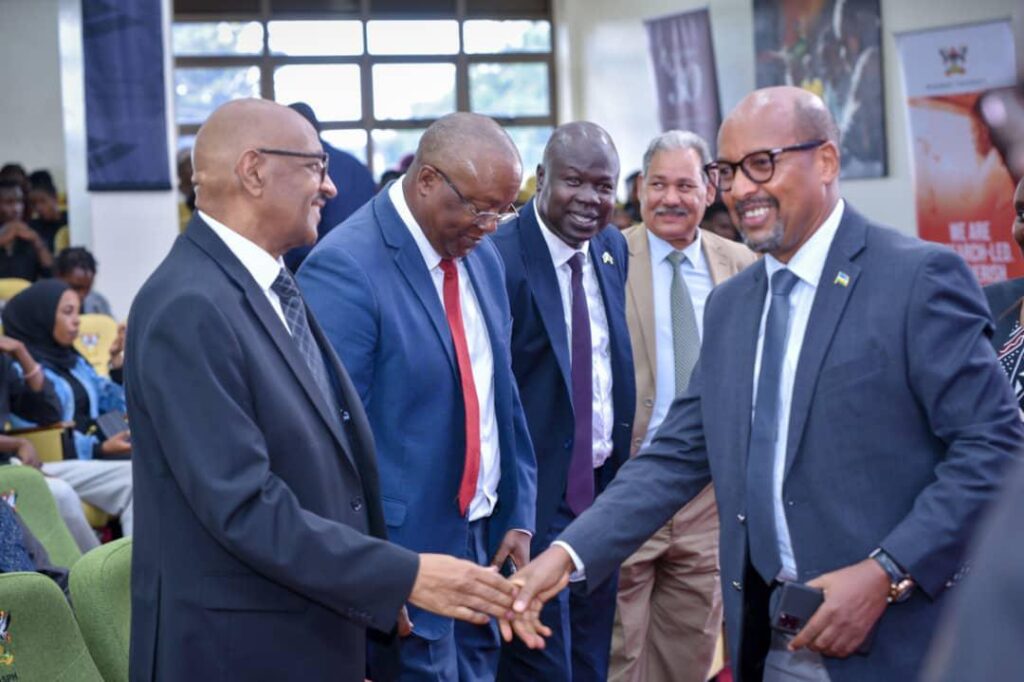
Dr. Wandia Njoya, a Senior Lecturer & Head of Department at Daystar University, Nairobi, said the gist of her reflections is that the knowledge of “how we think, with whom we think” remains a central issue in remembering the genocide and rebuilding Rwanda.
“We Africans, and East Africans, must take the commemoration of the 1994 genocide against the Tutsi as a duty of all of us. All the struggles of Rwandans to understand, to heal, to recover, and to remember, are the struggles in which Africans across the world have been engaged for the last five centuries of colonialism and racism,” she noted.
According to her, the practice of having conversations like this, as East Africans, “among ourselves” must be streamlined.
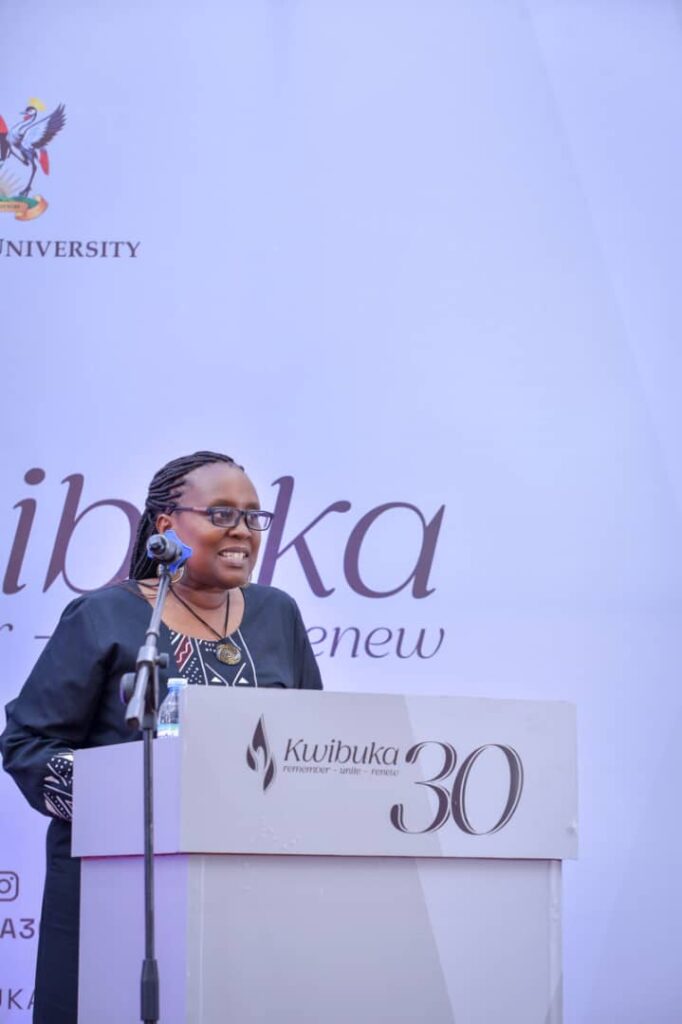
“My exhortation to youth, your duty isn’t limited to learning and understanding what happened in Rwanda that culminated with the genocide against the Tutsi in 1994. You must go a step further. You must pursue knowledge. Do not listen to ideologies that lock our history in the past,” she added.
